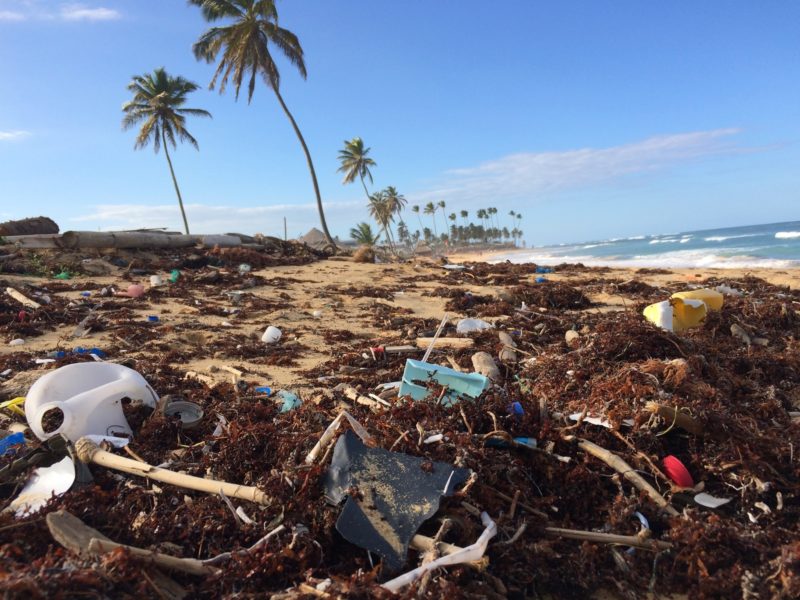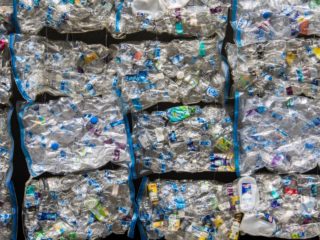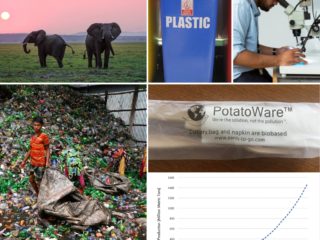With the planet battling a plastic problem of epic proportions and now, Plastic Free July just a couple of days away, plastic pollution is a hot news topic and one that I write about frequently. It was therefore with interest that I settled in to watch the recent PBS profile on the topic, Is Chemical Recycling the Answer to Our Plastic Problem?
As one of this country’s most respected news organizations, and one I watch religiously, I was entirely disappointed in their coverage on plastic pollution, one of the most critical issues of our time.
An Industry Awash in Greenwashing
Let me back up a little before I get into the reasons for my disappointment. Much of my work is on plastic pollution and helping consumers understand and identify effective waste reduction strategies.
Last December, I wrote a piece on chemical recycling entitled, Greenwashing Alert: Is Chemical Recycling the Solution to Plastic Pollution? I identified the inherent flaws in chemical recycling’s supposed solution to our plastic problem, including the need for these fledgling technologies to address the immediate crisis at a scale that isn’t possible given their infancy; the questionable nature of chemical recycling’s environmental claims when considering the full life-cycle process; and the inability of chemical recycling to solve one of the greatest challenges that face all recycling systems: human error.
Understanding industry motivation is one of the most important aspects of assessing the effectiveness of recycling. If you look back decades to uncover the origins of the relationship of plastics-focused industries (fossil fuel, plastics, packaging, beverage) with recycling it’s clear that they have a vested interest in promoting recycling. The most notable example is the industry-funded Keep America Beautiful recycling campaign. (Remember the “Crying Indian”?) The message that originated from that campaign — one that has been perpetuated in the decades since — is that people created this mess, so people need to clean it up by littering less and recycling more.
This shift in waste reduction responsibility from producer to consumer has allowed the plastics-focused industries to continue merrily along with more and more production. After all, recycling will clean it all up!
What’s the Solution to Our Plastic Problem?
Here’s what PBS did right: It identified our plastic problem. The 7-minute piece highlights all the scary details on plastic pollution.
Here’s what PBS did wrong: It perpetuated the industry’s recycling-is-best message for tackling plastic pollution. To be sure, the piece highlighted woeful recycling rates and mounting piles of plastic waste, but the solution offered was better recycling technologies, not an examination of whether recycling is, in fact, the most effective waste reduction tool. And, no mention was made of holding the industry accountable for creating this mess in the first place.
The quote that sums up the PBS piece’s message (intentionally or not) is from University of Wisconsin professor George Huber, who declares that the “most valuable use” of his new chemical recycling technology “will be to make other plastics.” The takeaway: producers, you can keep on producing and consumers, you can keep on consuming.
With a planetary crisis (have I mentioned that enough times?) on our hands, it’s imperative that reputable media outlets like PBS not gloss over the real root of our plastic waste problem: the production of single-use plastic.
Any news profile on recycling methods must underscore the fundamental flaws and acknowledge that, even if improved, these processes are unlikely to stem the plastic tsunami that threatens to drown us all.
Consumers have been conditioned — yes, brainwashed — for decades through relentless greenwashing tactics by the fossil fuel and plastics industries to believe that recycling is the best and only solution to our plastic problem. We’ve been told that we are the problem with all this waste. If we don’t litter and recycle responsibly our plastic pollution problem will disappear.
While we can (and should) help reduce single-use plastic waste by disposing of it responsibly, our efforts are a drop in the ocean when compared to the enormous quantities produced. Now, even more plastic is anticipated, given a plastic production surge on the horizon. When it comes to single-use plastic, the real message should be producers shouldn’t produce and consumers shouldn’t consume.
It’s the responsibility of trusted news organizations, like PBS, to show the true picture — the fact that recycling is only one, and certainly not the best, solution to our plastic problem, and it’s the one that’s been perpetuated by the plastics-focused industries to justify continued plastics production.
The most effective solution, and one not even mentioned in the PBS piece, is to drastically reduce the production of single-use plastic and packaging. Legislative action through extended producer responsibility policies is one way. Just recently, for example, New Zealand has taken a bold step to ban most single-use plastics by 2025. Only when producers are held accountable will we have any hope of realizing substantive reductions in plastic waste.









